Home>diy>Building & Construction>Who Is Above A Superintendent In Construction
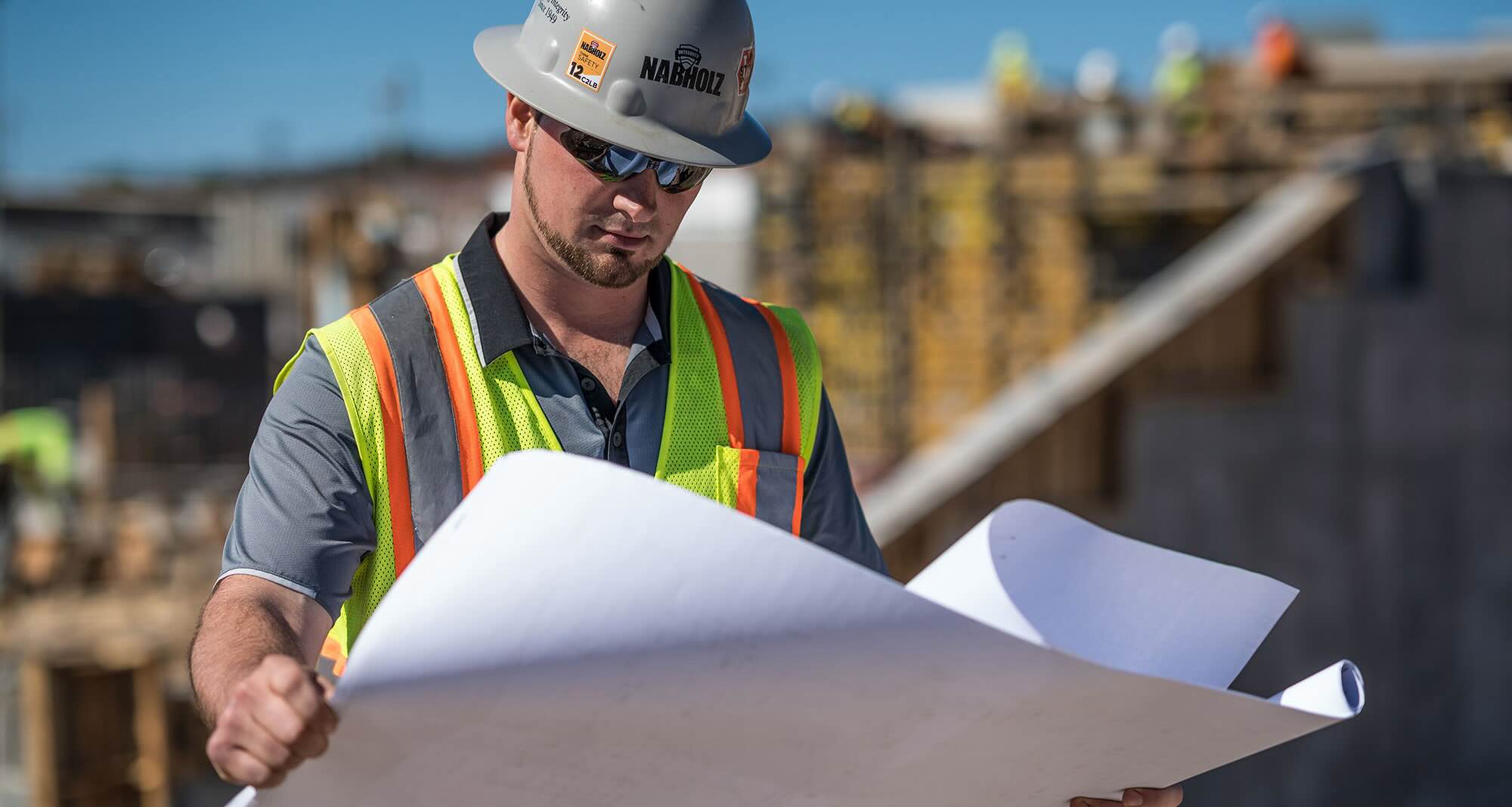

Building & Construction
Who Is Above A Superintendent In Construction
Modified: January 6, 2024
Discover the hierarchy of construction management in the building construction industry. Learn who ranks above a superintendent and their roles.
(Many of the links in this article redirect to a specific reviewed product. Your purchase of these products through affiliate links helps to generate commission for Storables.com, at no extra cost. Learn more)
Introduction
When it comes to the world of construction, there is a hierarchical structure in place that ensures efficient management and coordination of projects. At the heart of this structure is a superintendent, who plays a crucial role in overseeing the construction process and keeping it on track.
A superintendent is responsible for managing and supervising the day-to-day operations at a construction site. They are the on-site leader who ensures that the project is executed according to the plans, specifications, and timelines set by the project manager and other stakeholders. This role requires a deep understanding of building construction and the ability to navigate various challenges that may arise during the construction process.
In this article, we will explore the role of a superintendent in construction and discuss the hierarchy within construction companies, including who is above a superintendent in the organizational structure.
Key Takeaways:
- The hierarchical structure in construction companies, from superintendent to CEO, ensures efficient project management, operational excellence, and strategic direction, contributing to the success and growth of the organization.
- Each role, from superintendent to CEO, plays a crucial part in the seamless execution of construction projects, emphasizing the importance of collaboration, leadership, and specialized skills at every level.
Read more: What Is A Construction Superintendent
Role of a Superintendent in Construction
A superintendent in construction plays a crucial role in ensuring the successful completion of a construction project. They are responsible for overseeing and coordinating all aspects of the construction process, from planning and scheduling to managing resources and ensuring quality control. Let’s delve deeper into the key responsibilities of a superintendent:
- Project Planning: The superintendent works closely with the project manager to develop a comprehensive plan for the construction project. This involves analyzing blueprints and drawings, determining the necessary resources and materials, and creating an efficient timeline.
- Supervision and Coordination: The superintendent oversees the work of subcontractors, suppliers, and construction crews to ensure that they are following the project plan and meeting the specified quality standards. They coordinate with different teams, including architects, engineers, and inspectors, to ensure successful collaboration.
- Scheduling and Time Management: It is the superintendent’s responsibility to create and maintain an accurate construction schedule. They monitor the progress of the project, identify any delays or issues, and make adjustments to keep the project on track and within the specified deadlines.
- Quality Control: A superintendent is responsible for maintaining high-quality standards throughout the construction process. They conduct regular inspections, identify any deficiencies or deviations from the plans, and ensure that corrective measures are taken to address them.
- Safety Management: The superintendent is responsible for ensuring a safe working environment for everyone on the construction site. They enforce safety protocols, conduct regular safety inspections, and address any safety concerns promptly.
- Problem Solving: Construction projects often encounter unexpected challenges or issues. The superintendent must be equipped with problem-solving skills to address these issues effectively. They must be resourceful, adaptable, and able to make quick decisions to overcome obstacles.
Overall, the role of a superintendent in construction is multi-faceted and requires a combination of technical knowledge, leadership skills, and effective communication. They are the linchpin that holds the construction team together and ensures the smooth execution of the project.
Hierarchy in Construction Companies
In construction companies, there is a well-defined hierarchy that outlines the roles and responsibilities of individuals at different levels. This hierarchy allows for effective communication, decision-making, and efficient project management. Let’s explore the typical hierarchy in construction companies, starting from the superintendent and moving upwards:
- Superintendent: The superintendent is the on-site leader responsible for overseeing day-to-day operations at the construction site. They ensure that the construction project is executed as per the plans and specifications, manage the construction crew, and coordinate with subcontractors and suppliers.
- Project Manager: The project manager is responsible for the overall management of the construction project. They work closely with the superintendent to develop the project plan, establish timelines and budgets, procure necessary resources, and ensure that the project is delivered successfully to the client. The project manager liaises with various stakeholders, including clients, architects, engineers, and subcontractors.
- General Manager: The general manager is responsible for overseeing multiple construction projects within a company. They ensure that each project is aligned with the company’s goals and meets the desired quality standards. This role involves collaborating with the project managers, supporting their efforts, and making strategic decisions to drive the company’s growth and success.
- Vice President of Operations: The vice president of operations is responsible for the overall operational performance of the construction company. They assess and improve the company’s operational efficiency, implement best practices, and ensure that projects are delivered on time and within budget. The vice president of operations also plays a crucial role in developing and maintaining client relationships.
- Chief Operations Officer (COO): The COO oversees the day-to-day operations of the construction company. They work closely with the executive team to develop and implement strategies that align with the company’s vision and goals. The COO focuses on optimizing operational processes, managing resources, and driving overall performance and profitability.
- Chief Executive Officer (CEO): The CEO is the top executive in a construction company. They have the ultimate responsibility for the company’s overall operations, growth, and success. The CEO sets the strategic direction, fosters a positive company culture, and ensures that the organization achieves its financial and operational goals. They also represent the company in external partnerships, negotiations, and decision-making.
This hierarchical structure allows for clear lines of authority, efficient decision-making, and effective coordination within construction companies. Each role has its own set of responsibilities and contributes to the successful completion of construction projects while ensuring the growth and sustainability of the organization as a whole.
Project Manager
The role of a project manager in construction is vital for the successful execution of construction projects. As the key point of contact between the client, the construction team, and other stakeholders, the project manager is responsible for overseeing every aspect of the project from start to finish. Let’s explore the responsibilities and skills required to excel as a project manager in the construction industry:
Responsibilities of a Project Manager:
- Project Planning and Strategy: The project manager is involved in the early stages of a project, working closely with the client and other stakeholders to define the project goals, scope, and budget. They develop a comprehensive project plan, including timelines, resource allocation, and risk management strategies.
- Contract Negotiation and Procurement: Project managers are often involved in contract negotiations with clients, subcontractors, and suppliers. They assess bids, review contracts, and ensure that all parties involved understand and adhere to the agreed-upon terms. They also ensure timely procurement of necessary materials and equipment for the project.
- Team Management: A project manager oversees the construction team, including architects, engineers, superintendents, and subcontractors. They assign responsibilities, coordinate workflow, and ensure effective communication and collaboration among team members. They also monitor the performance of the team, provide guidance and feedback, and address any issues or conflicts that may arise.
- Cost Control and Budget Management: Project managers are responsible for monitoring and controlling project costs, ensuring that the project remains within budget. They track expenses, review invoices, and assess change orders. They also work closely with the project accountant to ensure accurate financial management and reporting.
- Schedule Management: Project managers create and manage project schedules, ensuring that the project progresses according to the agreed-upon timeline. They identify critical milestones, monitor progress, and address any delays or issues that may impact the project’s schedule. They also make adjustments to the schedule when necessary and communicate any changes to stakeholders.
- Quality Assurance: Project managers are responsible for maintaining high-quality standards throughout the construction process. They ensure that work is completed according to industry standards and project specifications. They conduct regular inspections and checks to identify and address any issues related to quality.
- Client Relations: Project managers act as the main point of contact for clients, keeping them informed about project progress, addressing their concerns, and ensuring their satisfaction. They build and maintain strong relationships with clients through effective communication, responsiveness, and transparency.
Skills Required for a Project Manager:
Successful project managers in construction possess a mix of technical and soft skills. These include:
- Technical Knowledge: A project manager should have a deep understanding of construction processes, codes, and regulations. They should be familiar with industry standards and best practices.
- Leadership Skills: Project managers must demonstrate strong leadership skills to effectively manage and motivate the construction team. They should be able to make decisions, delegate tasks, and resolve conflicts.
- Communication and Negotiation: Effective communication is crucial in managing stakeholders, negotiating contracts, and resolving issues. Project managers must be able to communicate clearly and confidently, both in written and verbal formats.
- Organizational Skills: Project managers must possess excellent organizational skills to manage multiple tasks, deadlines, and resources effectively. They should be detail-oriented and capable of prioritizing and managing project workflows.
- Problem-Solving Abilities: Construction projects often encounter unexpected challenges. A project manager should have strong problem-solving skills to address issues quickly and efficiently.
A project manager is a key player in the construction industry. Their ability to plan, manage resources, communicate effectively, and ensure the successful delivery of projects is essential for the growth and reputation of construction companies.
General Manager
In the hierarchy of a construction company, the role of a general manager is crucial for overseeing multiple construction projects and ensuring that overall operations run smoothly. The general manager holds a pivotal position, serving as a bridge between project managers, clients, and the executive team. Let’s explore the responsibilities and skills required to excel as a general manager in the construction industry:
Responsibilities of a General Manager:
- Project Oversight: The general manager has a comprehensive view of all ongoing construction projects within the company. They monitor project progress, ensuring that projects are executed according to plan, within budget, and within the agreed-upon timelines. They work closely with project managers to provide guidance and support as needed.
- Strategic Planning: A general manager plays a key role in shaping the strategic direction of the construction company. They work with the executive team to develop and implement business plans, establish growth targets, and identify opportunities for expansion or diversification. They analyze market trends and competitive landscape to stay ahead of the curve.
- Resource Allocation: General managers are responsible for effective resource allocation across multiple projects. They coordinate with project managers to ensure that the right resources, including manpower, materials, and equipment, are allocated appropriately. They also optimize resource utilization to maximize efficiency and minimize costs.
- Financial Management: General managers oversee the financial health of the company. They work closely with the finance department to manage budgets, review financial reports, and ensure accurate forecasting and cost control across projects. They analyze financial data to identify areas for improvement and implement strategies to enhance profitability.
- Client Relationship Management: General managers maintain relationships with key clients and stakeholders. They participate in meetings with clients, addressing their concerns and ensuring their satisfaction. They also nurture client relationships to encourage repeat business and referrals.
- Operational Excellence: General managers focus on improving operational efficiency and driving continuous improvement within the company. They streamline processes, identify bottlenecks, and implement measures to enhance productivity and quality. They also ensure adherence to health, safety, and environmental regulations and promote a culture of safety across all projects.
- Team Development: General managers foster a positive and collaborative working environment. They mentor and develop talent within the organization, identifying areas for skills enhancement and providing opportunities for professional growth. They promote teamwork, encourage knowledge sharing, and ensure effective communication across teams.
Skills Required for a General Manager:
A successful general manager in the construction industry possesses a wide range of skills. These include:
- Leadership Skills: General managers need strong leadership abilities to guide and inspire teams towards achieving organizational goals. They should be adept at decision-making, conflict resolution, and effective communication.
- Business Acumen: General managers must have a deep understanding of the construction industry and business fundamentals. They should be knowledgeable about industry trends, market dynamics, and competition, enabling them to make informed decisions.
- Financial Management: A strong grasp of financial management principles is essential for general managers. They should be skilled at budgeting, financial analysis, and resource allocation to ensure profitability and sustainable growth.
- Problem-Solving Abilities: General managers should possess excellent problem-solving skills to address challenges and make timely decisions. They should be proactive in identifying and resolving issues that may impact project delivery or company operations.
- Communication and Relationship-building: Effective communication and relationship-building skills are crucial for general managers. They should be able to collaborate and connect with clients, project managers, and team members to foster trust, transparency, and mutual understanding.
- Strategic Thinking: General managers must have a strategic mindset to develop long-term plans and initiatives that align with the company’s vision and goals. They should be able to anticipate trends, identify opportunities, and position the company for success.
A general manager serves as a key driver of success for a construction company. By overseeing projects, optimizing resources, and developing strategies for growth, general managers play a vital role in ensuring the success and reputation of the organization.
The person above a superintendent in construction is typically a project manager or construction manager. They are responsible for overseeing multiple projects and managing the overall construction process.
Read more: What Is A Superintendent In Construction
Vice President of Operations
In the hierarchy of a construction company, the role of the Vice President of Operations is critical for driving excellence in project execution and overall operational performance. This position is responsible for overseeing all operational aspects of the company, ensuring efficient project delivery, and driving continuous improvement. Let’s explore the responsibilities and skills required to excel as a Vice President of Operations in the construction industry:
Responsibilities of a Vice President of Operations:
- Operational Strategy: The Vice President of Operations works closely with the executive team to develop and implement operational strategies that align with the company’s goals. They analyze market trends, identify opportunities for growth, and recommend strategic initiatives to enhance overall operational performance.
- Resource Management: Vice Presidents of Operations are responsible for resource planning and management across projects. They ensure effective allocation of manpower, equipment, and materials to maximize productivity and achieve project timelines and budgets. They also identify opportunities to optimize resource utilization, reduce costs, and increase efficiency.
- Process Optimization: This role involves continuous evaluation and improvement of operational processes. Vice Presidents of Operations analyze existing workflows, identify bottlenecks, and implement measures to streamline operations. They introduce and integrate technological advancements to enhance productivity, quality, and safety within the organization.
- Quality Assurance and Compliance: Ensuring quality control and compliance with industry standards is a crucial responsibility. Vice Presidents of Operations develop and implement quality assurance programs, conduct regular inspections, and promote a culture of adherence to safety protocols, regulations, and environmental laws.
- Project Performance Monitoring: Vice Presidents of Operations track the performance of multiple projects. They review key performance indicators, analyze project progress, and identify areas for improvement or intervention. They provide guidance and support to project managers, assisting them in overcoming challenges and promoting successful project delivery.
- Client Relations: Maintaining strong client relationships is a key aspect of the Vice President of Operations’ role. They liaise with clients, address their concerns, and ensure satisfaction with project outcomes. They also work closely with the business development team to support client retention and pursue new opportunities.
- Team Leadership and Development: Vice Presidents of Operations provide leadership and guidance to teams within the organization. They mentor and develop talent, fostering a culture of continuous learning and professional growth. They promote collaboration, effective communication, and teamwork across departments and projects.
Skills Required for a Vice President of Operations:
A Vice President of Operations in the construction industry should possess a diverse set of skills to excel in this role:
- Leadership and Strategic Thinking: Vice Presidents of Operations should possess strong leadership skills and the ability to think strategically. They should be able to envision the company’s future direction, align operational strategies, and inspire teams to achieve organizational goals.
- Operational Excellence: A deep understanding of operational best practices and process improvement methodologies is essential. Vice Presidents of Operations should be skilled in optimizing workflows, reducing waste, and driving operational efficiency.
- Financial Acumen: A strong grasp of financial management principles is crucial for this role. Vice Presidents of Operations should be skilled at budgeting, cost control, and financial analysis to enhance profitability and resource allocation.
- Problem-Solving and Decision-Making: The ability to analyze complex situations, identify issues, and make timely decisions is essential. Vice Presidents of Operations should possess strong problem-solving skills, enabling them to address challenges and develop effective solutions.
- Communication and Relationship-building: Effective communication and relationship-building skills are vital for successful collaboration within the organization and with external stakeholders. Vice Presidents of Operations should be able to communicate clearly and build strong relationships with clients, contractors, and team members.
- Change Management: As a driver of operational improvements, Vice Presidents of Operations should possess change management skills to successfully implement and sustain changes across the organization. They should be able to manage resistance, communicate the benefits of change, and ensure smooth transitions.
A Vice President of Operations plays a crucial role in effectively managing and optimizing the operational aspects of a construction company. By leveraging their strategic vision, leadership abilities, and operational expertise, they contribute to the overall success, growth, and reputation of the organization.
Chief Operations Officer
The role of the Chief Operations Officer (COO) in a construction company is of utmost importance, as they oversee all aspects of the company’s operations to ensure efficiency, productivity, and sustainable growth. As a key member of the executive team, the COO collaborates with other department heads to align operations with the overall business strategy. Let’s explore the responsibilities and skills required to excel as a Chief Operations Officer in the construction industry:
Responsibilities of a Chief Operations Officer:
- Strategic Planning: The COO works closely with the CEO and executive team to develop and execute operational strategies that align with the company’s goals. They contribute to the development of long-term plans, identify areas for growth and improvement, and provide guidance on operational feasibility and scalability.
- Operational Excellence: The COO is responsible for driving operational excellence within the organization. They establish and enforce operational policies, procedures, and standards to ensure consistent and high-quality project execution. They analyze performance metrics, identify areas for improvement, and implement initiatives to optimize operational efficiency and effectiveness.
- Resource Management: The COO oversees the allocation and utilization of resources across projects. This includes managing human resources, equipment, and subcontractors/vendors. They optimize resource allocation to meet project demands, while also ensuring cost-effectiveness and maximizing profitability.
- Financial Management: The COO collaborates with the finance department to monitor and control operational budgets, expenses, and financial performance. They analyze financial data, identify cost-saving opportunities, and make strategic financial decisions to drive profitability while maintaining operational standards.
- Risk Management: The COO ensures that effective risk management strategies are in place across the organization. They identify potential risks and develop mitigation plans to minimize the impact on project delivery and overall operations. They also ensure compliance with health, safety, and environmental regulations.
- Quality Assurance: The COO establishes and monitors quality assurance processes to maintain high standards throughout the organization. They implement quality control measures, oversee inspections and audits, and promote a culture of continuous improvement to enhance customer satisfaction and reputation.
- Strategic Partnerships and Business Development: The COO plays a pivotal role in building and maintaining strategic partnerships with clients, subcontractors, and industry stakeholders. They foster client relationships, drive business development initiatives, and ensure alignment between operational capabilities and client requirements.
- Team Leadership and Development: The COO provides leadership and guidance to the operations team, fostering a culture of collaboration, professional development, and continuous learning. They promote effective communication, teamwork, and knowledge sharing to enhance overall performance.
Skills Required for a Chief Operations Officer:
To excel as a Chief Operations Officer, individuals should possess a diverse set of skills:
- Leadership and Strategic Thinking: Chief Operations Officers need strong leadership skills and the ability to think strategically. They should have a customer-centric mindset, the capacity to anticipate industry trends, and make informed operational decisions that align with the company’s vision and goals.
- Operational Management: A deep understanding of construction operations, processes, and best practices is essential. COOs should possess strong project management skills, knowledge of industry methodologies, and the ability to drive operational efficiency and effectiveness.
- Financial Acumen: COOs need to have financial literacy and business acumen to manage budgets, monitor financial performance, and make sound financial decisions to drive profitability.
- Problem-Solving and Decision-Making: The ability to analyze complex situations, identify issues, and make timely decisions is crucial for a COO. They should possess strong problem-solving skills and the capacity to navigate challenges, resolve conflicts, and capitalize on opportunities.
- Communication and Relationship-building: COOs should have excellent communication and interpersonal skills to foster effective collaboration both internally and externally. They should be able to build strong relationships with clients, contractors, and team members, and possess the ability to influence and inspire.
- Change Management: COOs must be skilled in change management processes, as they oversee organizational change initiatives. They should be able to effectively communicate change, manage resistance, and facilitate smooth transitions within the organization.
A Chief Operations Officer serves as a critical driving force behind the success of a construction company. By leading operational excellence, optimizing resources, managing risks, and promoting continuous improvement, COOs contribute to the overall growth, profitability, and success of the organization.
Chief Executive Officer
The Chief Executive Officer (CEO) holds the highest position of leadership and responsibility in a construction company. They are responsible for setting the strategic direction of the organization and overseeing its overall operations. As the ultimate decision-maker, the CEO plays a critical role in driving growth, profitability, and the company’s reputation. Let’s explore the responsibilities and skills required to excel as a Chief Executive Officer in the construction industry:
Responsibilities of a Chief Executive Officer:
- Vision and Strategy: The CEO sets the vision and strategic direction of the organization. They define the long-term goals, values, and mission of the company and develop strategies to achieve them. They monitor industry trends, identify market opportunities, and make informed decisions to drive the company’s growth and success.
- Leadership and Team Management: CEOs provide leadership and guidance to the executive team and the entire organization. They build a strong management team, delegate responsibilities, and foster a culture of collaboration, innovation, and accountability. They inspire and motivate employees, driving performance and creating a positive work environment.
- Financial Oversight: CEOs have overall responsibility for the company’s financial performance. They work closely with the finance department to develop and monitor budgets, ensure financial stability, and drive profitability. They evaluate financial reports, analyze key performance indicators, and make strategic decisions to optimize financial outcomes.
- Stakeholder Management: CEOs represent the company to external stakeholders, including clients, investors, and industry partners. They build and maintain strong relationships with key stakeholders, negotiate contracts, and establish partnerships to drive business growth. They communicate effectively to ensure transparency and align stakeholder interests with the company’s objectives.
- Risk Management: CEOs are responsible for identifying and managing risks that may impact the company’s operations or reputation. They develop risk management strategies, implement effective control measures, and ensure compliance with regulations and standards. They stay abreast of industry changes to proactively address potential risks.
- Cultural and Ethical Leadership: CEOs set the tone for the company’s culture and ethical standards. They establish and reinforce a culture of integrity, professionalism, and ethical behavior throughout the organization. They promote diversity and inclusion, fostering a positive work environment that attracts and retains top talent.
- Strategic Partnerships and Business Development: CEOs play a key role in establishing and nurturing strategic partnerships with clients, industry leaders, and key influencers. They develop and maintain a network of relationships that advance the company’s interests and provide a competitive advantage. They lead business development initiatives, identify new market opportunities, and guide the organization’s growth strategies.
Skills Required for a Chief Executive Officer:
To excel as a Chief Executive Officer, individuals should possess a diverse set of skills:
- Strategic Thinking and Decision-making: CEOs need the ability to think strategically and make informed decisions based on critical analysis. They should possess a strong business acumen, the capacity to anticipate market trends, and the foresight to position the company for long-term success.
- Leadership and Inspiring Others: CEOs must have exceptional leadership skills to inspire and motivate employees at all levels of the organization. They should possess excellent communication skills, empathy, and the ability to create a vision that inspires commitment and engagement.
- Financial Acumen: A strong understanding of financial management and budgeting is crucial for CEOs. They should possess the ability to evaluate financial reports, interpret key performance indicators, and make strategic financial decisions that drive profitability and sustainable growth.
- Strategic Planning and Execution: CEOs should be adept at developing and implementing strategic plans that align with the company’s objectives. They should have the ability to set priorities, allocate resources effectively, and monitor progress to ensure successful execution of the company’s strategy.
- Communication and Relationship-building: CEOs need excellent communication skills to effectively engage with stakeholders, including clients, employees, investors, and the wider industry. They should be able to build and maintain strong relationships, influence others, and effectively convey the company’s vision and value proposition.
- Adaptability and Resilience: CEOs must be agile and adaptable in the face of changing market dynamics and business challenges. They should have the ability to navigate uncertainties, make timely adjustments, and lead the organization through periods of change and transformation.
A Chief Executive Officer plays a critical role in shaping the success and future of a construction company. Through visionary leadership, strategic decision-making, and effective management, CEOs guide the organization towards sustainable growth, innovation, and market leadership.
Conclusion
In the hierarchical structure of a construction company, each role plays a vital part in the successful completion of projects and the overall growth and efficiency of the organization. From the superintendent on the ground overseeing day-to-day operations to the CEO setting the strategic direction of the company, these roles work in tandem to ensure the smooth execution of construction projects.
The superintendent holds a key position as the on-site leader, responsible for overseeing the construction process and ensuring adherence to plans and timelines. They manage the construction crew, coordinate with subcontractors, and play a critical role in maintaining quality standards throughout the project.
As we move up the hierarchy, we encounter essential roles such as the project manager, general manager, vice president of operations, and chief operations officer. Each of these positions holds increasing responsibilities in managing multiple projects, strategic planning, resource allocation, financial management, and fostering client relationships.
At the top of the hierarchy is the Chief Executive Officer, who defines the company’s vision, sets strategic goals, and ensures the overall success and growth of the organization. The CEO oversees all operational aspects, manages risks, builds strong stakeholder relationships, and provides leadership to the executive team.
In conclusion, the hierarchy in a construction company is designed to optimize project management, operational efficiency, and strategic decision-making. Each role, from the superintendent to the CEO, contributes to the seamless execution of construction projects while driving the company’s growth, reputation, and success. By understanding the responsibilities and skills required at each level, construction companies can build a strong, collaborative, and effective organizational structure that adds value to their projects and stakeholders.
Frequently Asked Questions about Who Is Above A Superintendent In Construction
Was this page helpful?
At Storables.com, we guarantee accurate and reliable information. Our content, validated by Expert Board Contributors, is crafted following stringent Editorial Policies. We're committed to providing you with well-researched, expert-backed insights for all your informational needs.
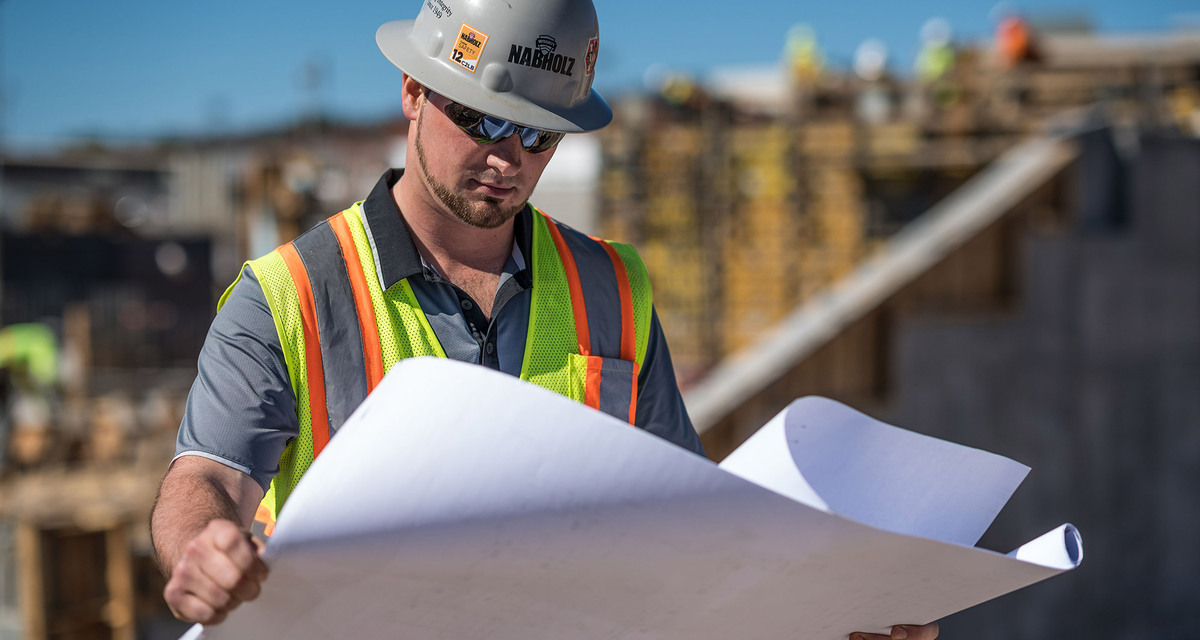


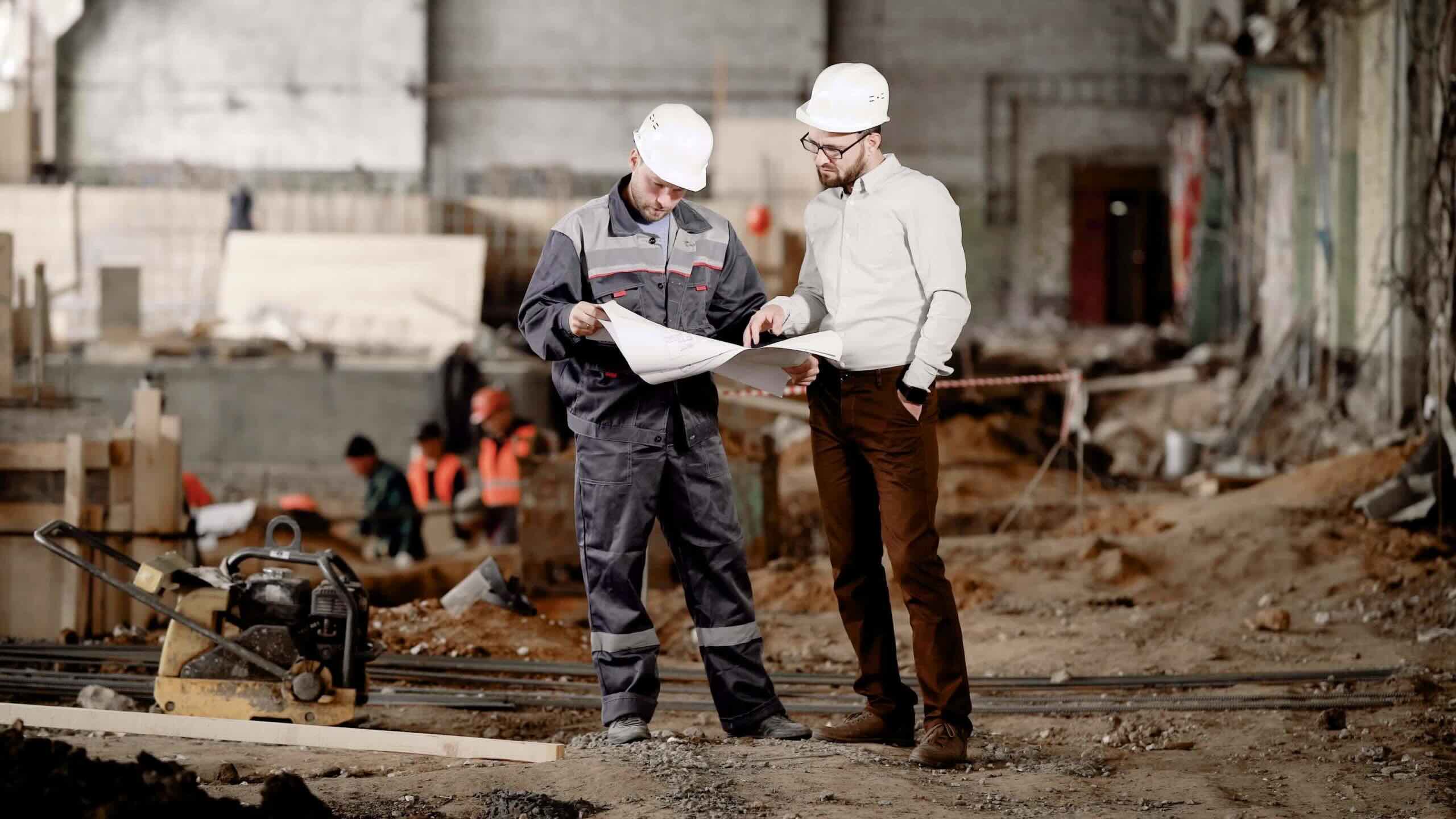
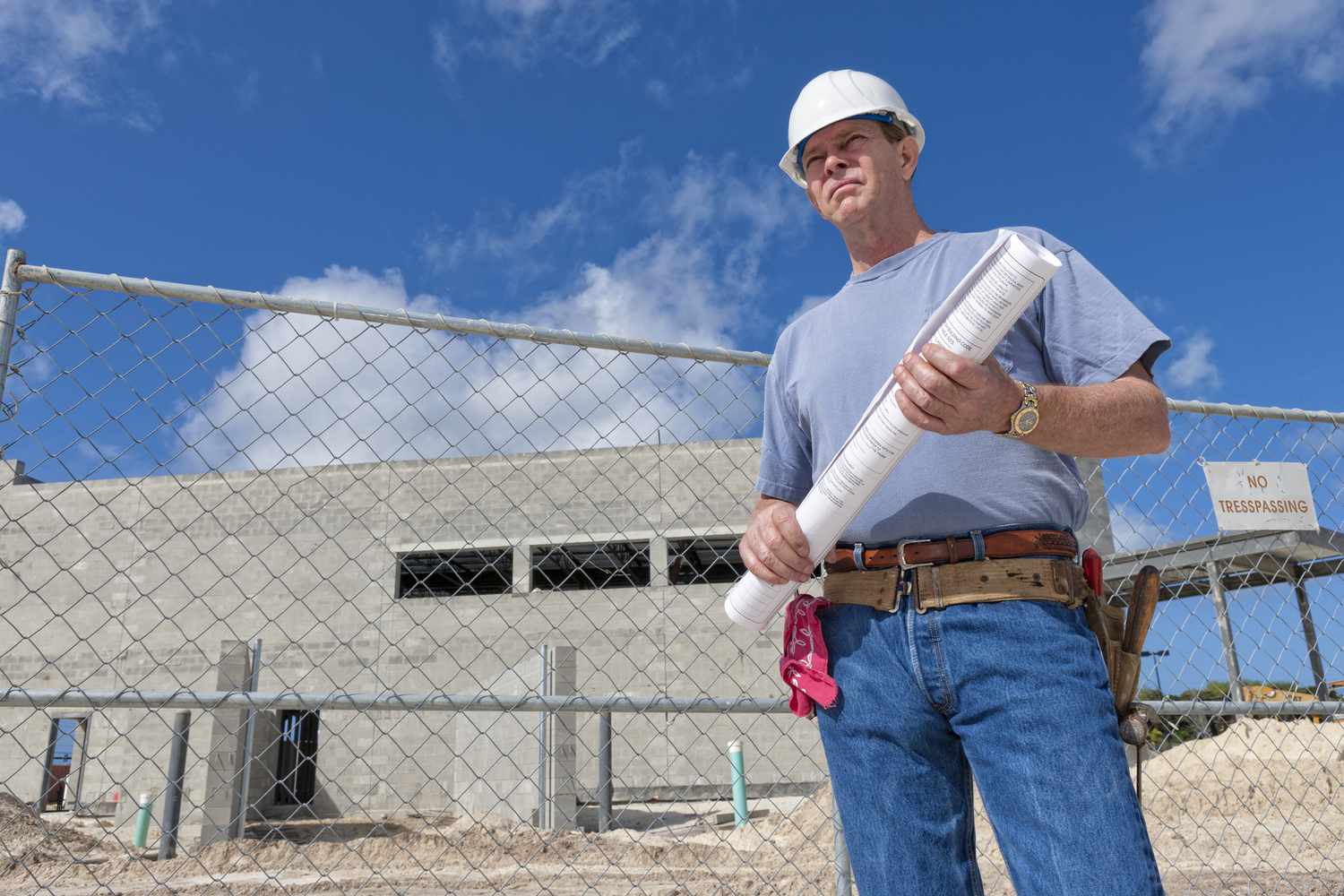
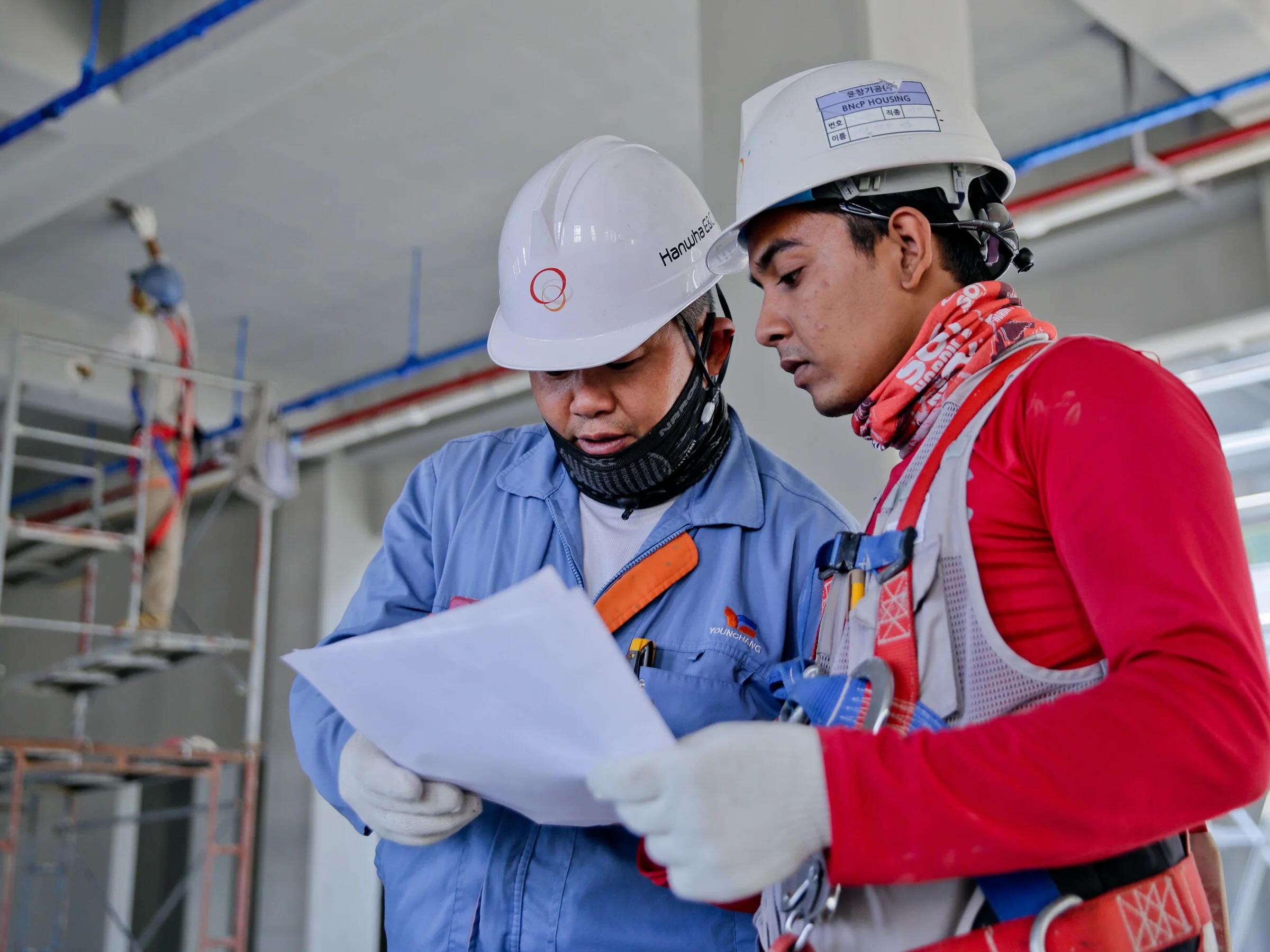



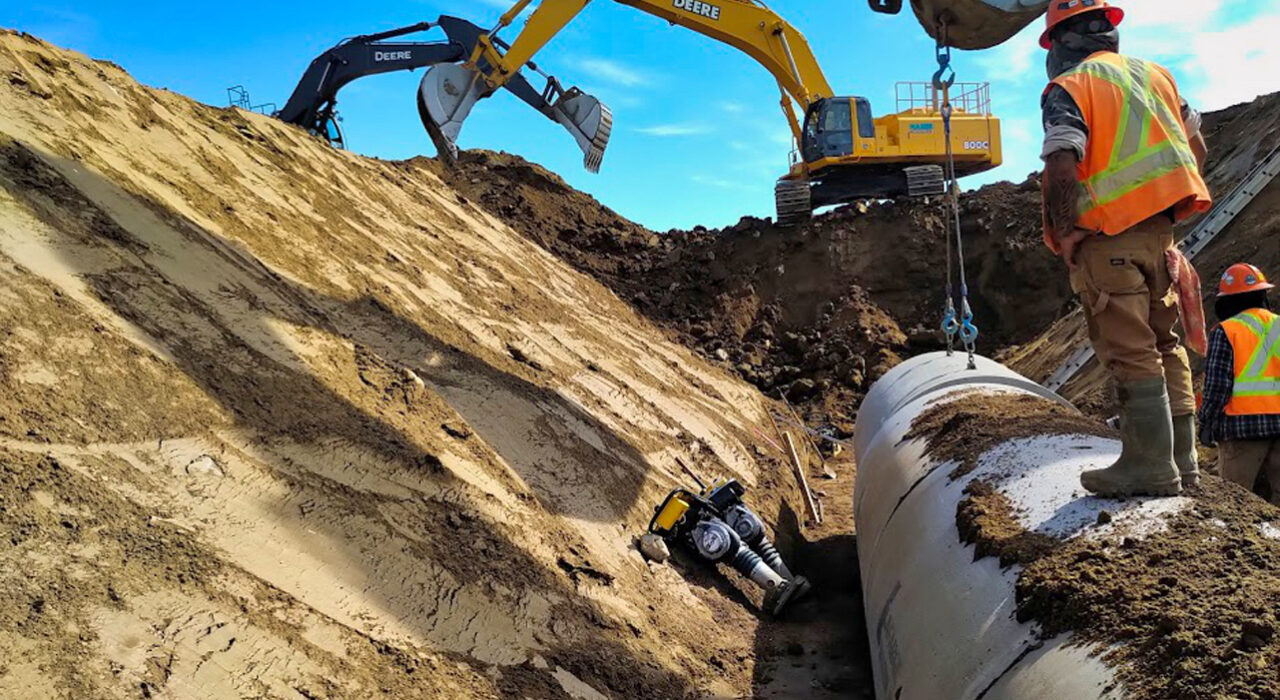


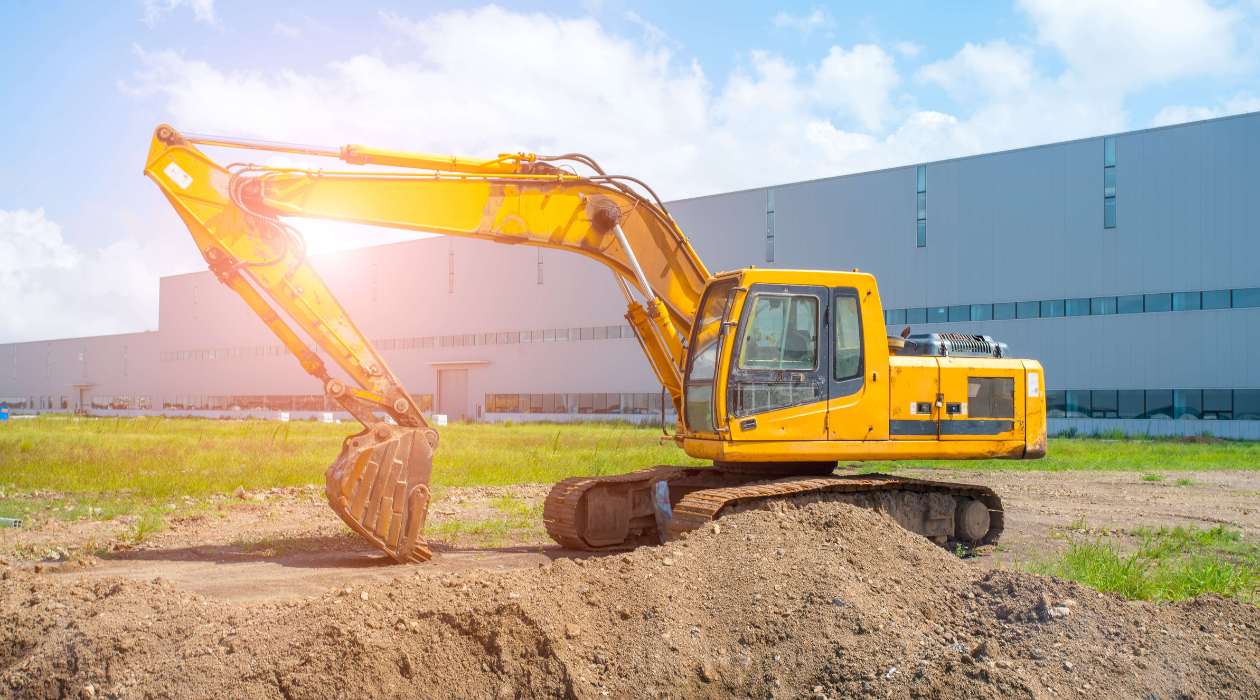
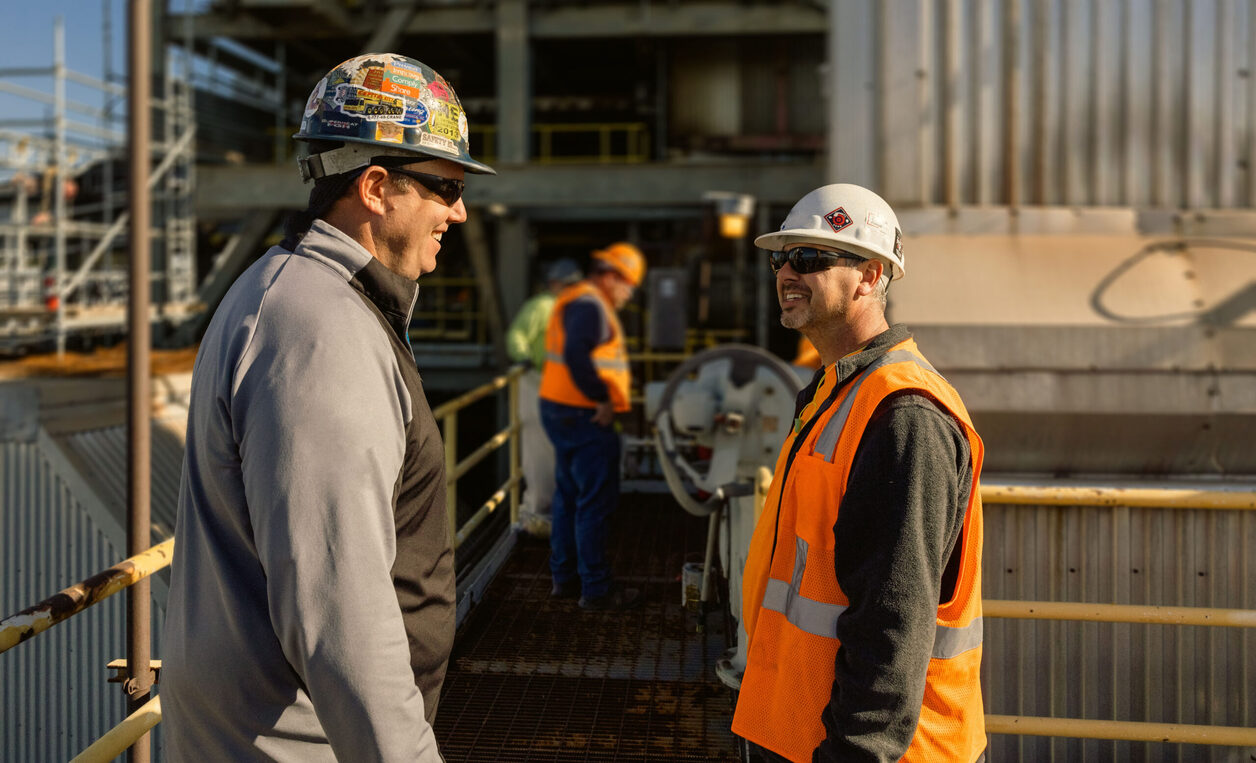

0 thoughts on “Who Is Above A Superintendent In Construction”